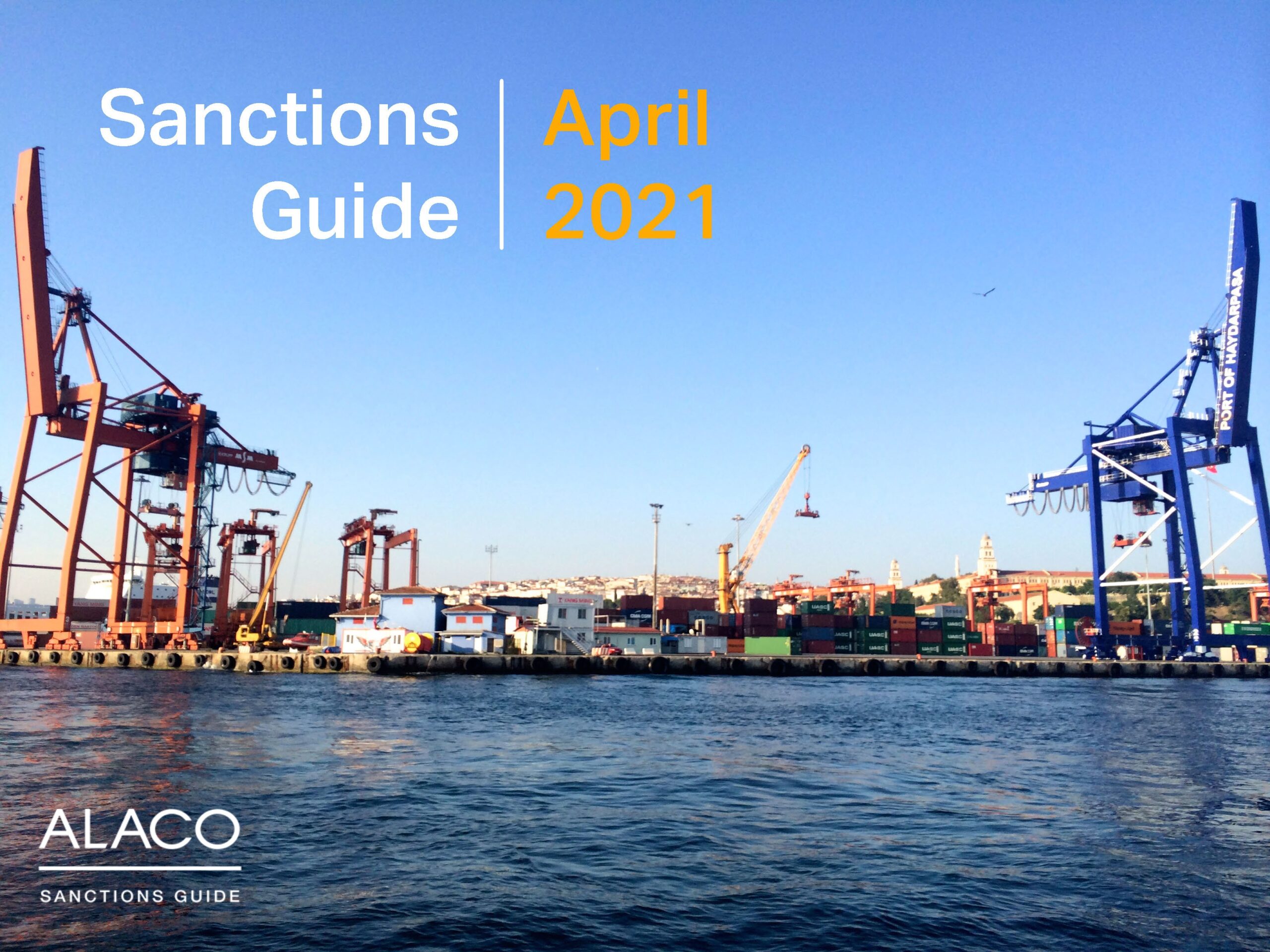Key developments this month include the UK Government’s publishing of the Integrated Review of Security, Defence, Development and Foreign Policy, the continued stalling of the potential resumption of JCPOA talks, the revocation of EU sanctions against Egypt and further US State Department warnings about Nord Stream II. Designations this month include an OFAC listing for Ukrainian oligarch Igor Kolomoisky, as well as sanctions against those responsible for human rights breaches against the Uighurs in China and in relation to the coup in Burma imposed by OFAC, the EU and OFSI.
- The UK government has published its Integrated Review of Security, Defence, Development and Foreign Policy, which states that the Government intends use sanctions to “act as a force for good in standing up for human rights around the world”, to hold to account those involved in “serious human rights violations and abuses”, and to stand up for “national security diplomacy”.
- Further steps were taken in support of this purpose alongside the EU on 22nd March, with asset freezes and travel bans imposed on four senior Chinese officials and a state-run security body for serious human rights violations relating to the treatment of the Uighur population of Xinjiang. OFAC had previously taken action in relation to Xinjiang on 17th March, adding 24 Chinese officials to its list of specially designated nationals under Executive Order 13936.
- Another theme this month has been action against Russia. The US State Department has issued a press statement saying that it is “tracking efforts to complete the Nord Stream 2 pipeline and is evaluating information on entities that seem to be involved.” It warns that entities involved in the pipeline risk exposure to sanctions and advises that they should cease work on the project.
- Also in relation to Russia, the EU has made designations under its new global human rights program for the first time, sanctioning four Russian officials for serious human rights violations. OFAC designated seven senior Russian officials on the same day. Both measures were in response to the poisoning and subsequent imprisonment of Alexei Navalny. OFAC has also issued a general license authorising certain transactions with the FSB necessary for its administrative and law enforcement capacities.
- There remains little movement with regard to the Iranian sanctions programme. Iran’s Foreign Ministry has declined a proposal put forward by Josep Borrell, the EU High Representative and JCPOA coordinator, to attend an unofficial meeting of signatories to the nuclear deal and the US, in a further sign that the resumption of talks remains a distant prospect.
- On 12th March the EU Council revoked its framework that established a sanctions regime against people identified as responsible for the misappropriation of state funds in Egypt. As a result, sanctions currently targeting nine Egyptian nationals were lifted. The framework was first introduced in 2011 in the aftermath of the Arab Spring.
- Senior US administration officials have confirmed plans to review the effectiveness of the US sanctions regime against Venezuela. The decision follows publicised concerns that “unilateral sanctions, over the last four years, have not succeeded in achieving an electoral outcome in the country”, and that the Maduro regime has adapted to sanctions and sustained itself through illicit activity.
- After the UN Special Envoy for Myanmar, Christine Schraner Burgener, called on member states to impose “hugely strong measures” against the Burmese military following the coup on 1st February, the EU designated eleven Burmese officials who are alleged to have been involved.
- The US State Department has imposed a travel ban on Ukrainian oligarch Igor Kolomoisky due to his alleged involvement in significant corruption. Kolomoisky is currently accused of misappropriating deposits worth several billions from the now state-owned Privatbank.
- Additional designations include US State Department’s imposition of visa restrictions on 76 Saudi nationals, and the listing of two under Global Magnitsky sanctions, following the publication of an intelligence report which assessed that Crown Prince Muhammad bin Salman had approved the operation to capture or kill Jamal Khashoggi in October 2018. OFAC has also designated Juan Manuel Abouzaid El Bayeh, a citizen of Mexico, as a specially designated narcotics trafficker.


